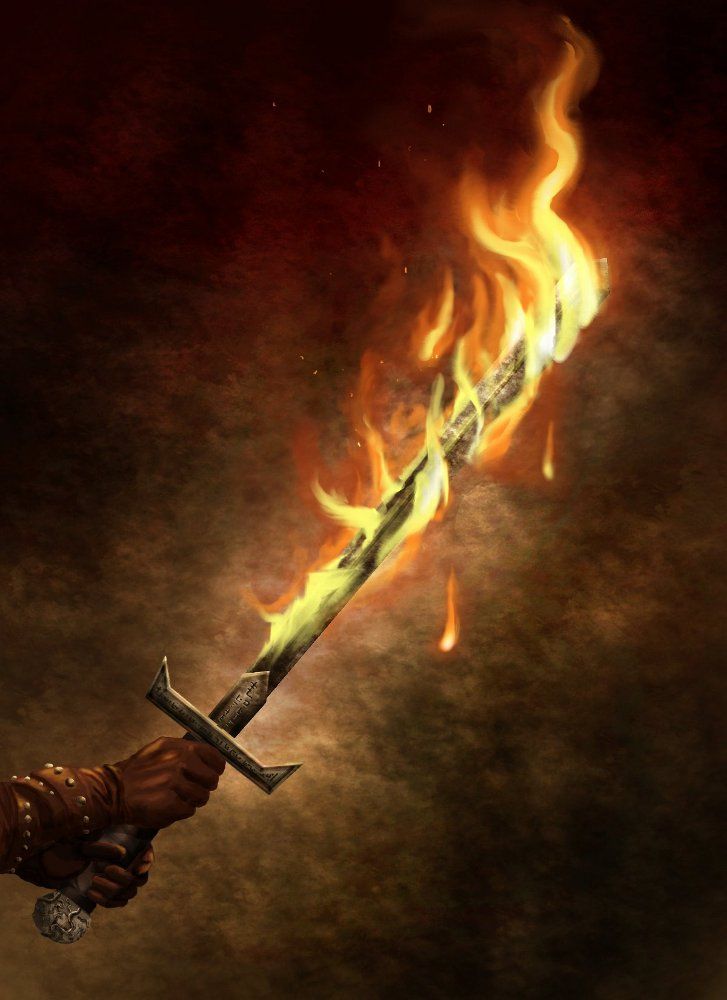Flame Blade (spell)
Flame blade sets a bladed weapon ablaze, so that it burns with a continuous magical fire for the duration of the spell. The weapon can be one used by any person — but must have an edge, such as a sword, scimitar or pole arm.
| Range | touch |
| Duration | 1 round per level |
| Area of Effect | 1 bladed weapon |
| Casting Time | 1 round |
| Saving Throw | objects save vs. fire |
| Level | druid (2nd) |
The dweomer cannot make a character proficient with the weapon and it offers no benefits to hit. However, the flame causes +2 damage whenever it hits, and the transformed weapon is counted as "magical." Against undead or cold-based creatures, the damage bonus is +4; but it has no special effect at all against heat and fire-based creatures, or creatures immune to fire.
Setting on Fire
Because the flame blade burns with a magical fire, it's touch has a potential of lighting virtually anything on fire, including hard metal and stones. When the blade hits a target, or is used to touch an object, one item that's touched must make a saving throw against magical fire. A suit of armour or opponent's weapon needs a 2, clothing needs a 14, a wooden shield needs a 10 and so on. If the saving throw is made, the blade fails to bestow its fire that round; but it may succeed in the next. The wielder of the flame blade chooses which object must make save when a hit occurs.
Once an object catches fire, the bearer must divest his or her self of the object or spend a round slapping away the flames. Dousing the flame is assured, but if used as an option the bearer suffers 1-6 additional damage. Otherwise, he or she may accept 1-6 damage each round if they prefer to go on fighting.
Fearfulness
Creatures with an intelligence of 6 or less will give ground before the flame blade and resist entering melee, unless they are cornered. Thus, even very large creatures can be made to back away and retreat before the blade. Once the flame subsides, however, the creature's agitation passes.
